'We must do better': ItsRainingRaincoats founder on 10 years of helping Singapore’s migrant workers
Dipa Swaminathan founded ItsRainingRaincoats in 2015 to support migrant workers in Singapore. As the charity celebrates its 10th year, she reflects on its impact and what else needs to be done for the country to become truly inclusive.
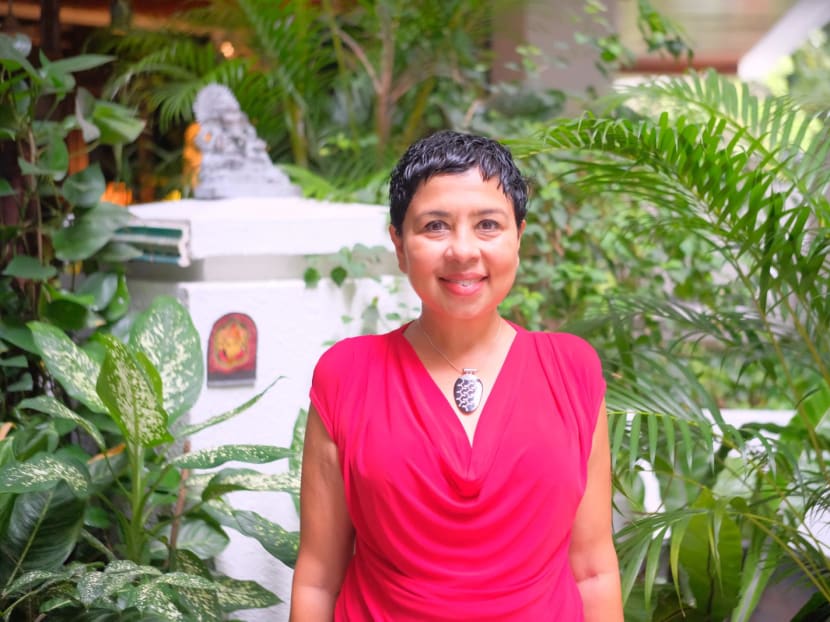
Dipa Swaminathan founded charity and migrant worker support organisation ItsRainingRaincoats 10 years ago, after a chance encounter with two migrant workers in need. (Photo: CNA/Izza Haziqah)

This audio is generated by an AI tool.
No matter where you are in Singapore, or what time it is, you’d have to purposely shut your eyes and cover your ears not to notice migrant workers about. They build our homes, paint our buildings, construct our roads, clean our streets and clear our trash, repair ships, and hold many other jobs.
How Singaporeans viewed migrant workers a decade ago was a far cry from today. Then, it was a sentiment laced with indifference, sometimes animosity, suspicion, and even disdain.
That negative perception towards migrant workers was one of the reasons Dipa Swaminathan founded ItsRainingRaincoats.
“They build our homes, our roads, our MRT stations – yet for a long time, they were seen but not truly acknowledged,” the 53-year-old Singaporean said.
The story has been told many times, but still bears repeating: Over 10 years ago, Dipa was driving home in a thunderstorm when she spotted two workers trying to shield themselves from the rain with nothing but a piece of cardboard.
She offered them a lift and gave them her phone number. One of them, Murugan, later called her. He told her that he had been charged with attempted suicide – he had been mistreated by his employers, had fallen into debt, and felt there was no way out.
After Dipa, who is a lawyer, helped Murugan get his charges dropped and loans cleared, she felt compelled to continue looking out for migrant workers.
She began doing so in her personal capacity but quickly realised she needed a team, and formed ItsRainingRaincoats.
Back then, its purpose was simple: Have Singaporeans share what they had with them. A few friends joined her by pooling their items and money to support a few workers.
The word about what they were doing to support this marginalised group in Singapore quickly spread and ItsRainingRaincoats slowly grew into a full-fledged movement.
THE SHIFT TOWARDS CARING FOR MIGRANT WORKERS
“When we first started ItsRainingRaincoats, the perception of migrant workers was very poor,” Dipa, who works full-time as a legal risk manager, told CNA Women.
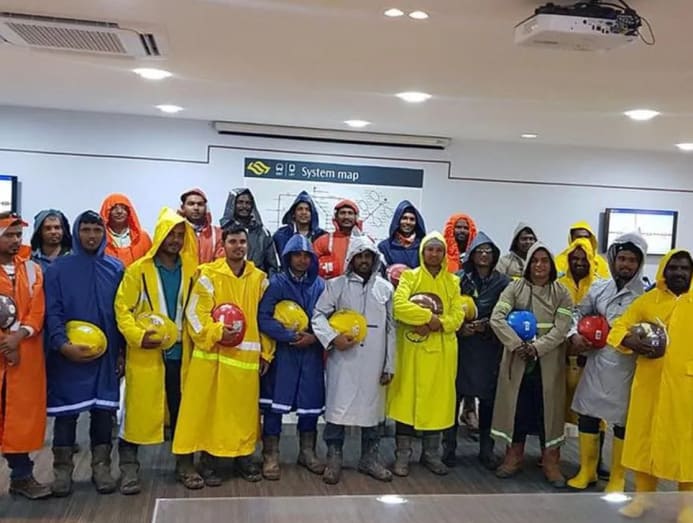
Most migrant workers in Singapore are employed in physically demanding sectors like construction, shipyards and process industries. These are jobs with long hours and low pay – work that few locals are willing to take on. They usually come from countries such as India, Bangladesh, China and Myanmar.
“It’s even in the language,” Dipa added. “We call them migrant workers, while people who also moved from Bangladesh or other parts of Asia for work, but in white-collar roles, are called expatriates.
“But in reality, they’re all here, far from home, working to improve their and their families’ lives.”
Back in the early 2010s, conversations about migrant workers were almost taboo.
“People barely even acknowledged their existence,” she said. “And those who did, often chose not to look too closely, despite the fact that Singapore has literally been built on their backs.”
I’m reminded of a moment in 2015, when I was in junior college. A friend said she didn’t like going to Little India because there were “too many workers” there, and she didn’t feel comfortable.
It wasn’t just racism, which was bad enough – it was a reflection of a broader perception that migrant workers were out of place, even in the spaces they had helped to build.
Worse, I didn’t speak up at the time.
When I told Dipa this story, she nodded. “That was the general sentiment back then – and not just among adults. Teenagers, children – many of them had grown up seeing workers as people to ignore, people who are ‘meant to work for us’. They weren’t seen as equals, let alone as people who deserved dignity, fair wages or inclusion.”
To address this, ItsRainingRaincoats has organised countless programmes.
They’ve hosted gatherings for iftar, the fast-breaking evening meal during the fasting month of Ramadan. The team of mostly volunteers has also worked with mosques, temples and churches to provide daily meals for workers and distribute cash donations.
Dipa said that all proceeds from their fundraising work go to the workers as extra allowance for their needs, such as getting to the airport from their dormitories, or when they need to see the doctor.
The charity has facilitated the gifting of pre-loved items – from fridges to washing machines, bicycles to portable air-conditioners – essentials to most Singaporeans, but often luxuries for workers living on tight budgets.
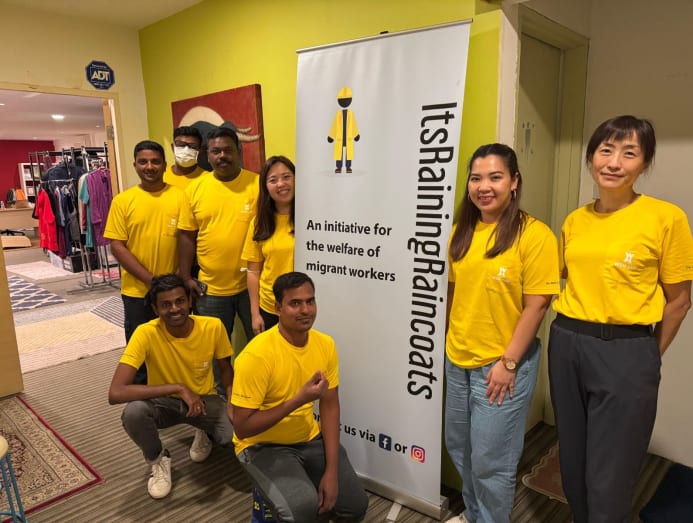
However, while it was heartening to see Singaporeans come together to help migrant workers, Dipa knew that real change doesn’t come from organising donation drives. It comes from changing mindsets to include these workers as part of Singapore – a much more arduous task.
So ItsRainingRaincoats organised community events where Singapore families could interact directly with workers – family days, shared meals, festive celebrations. For every event, there was a mix of locals and migrant workers to allow genuine connections to form.
Many local and international companies also collaborate with ItsRainingRaincoats on corporate social responsibility (CSR) programmes.
These include Manager for a Day, where employees help sort and manage the donations ItsRainingRaincoats receives; Makan with Migrant Brothers, where they share a meal and meaningful conversation with migrant workers; and Weekend Outings, where employees accompany workers on recreational trips to places like the zoo, Gardens by the Bay and Universal Studios Singapore.
ItsRainingRaincoats also began featuring stories from workers in their own voices and languages. The organisation shared these on social media, in addition to articles and photos. It gave workers the opportunity to speak for themselves, rather than be spoken about.
“We’ve come a very, very long way,” Dipa said. “And I’m certain that students in junior college today – even if not all – would think differently [about migrant workers].”
MORE SUSTAINABLE SUPPORT FOR MIGRANT WORKERS
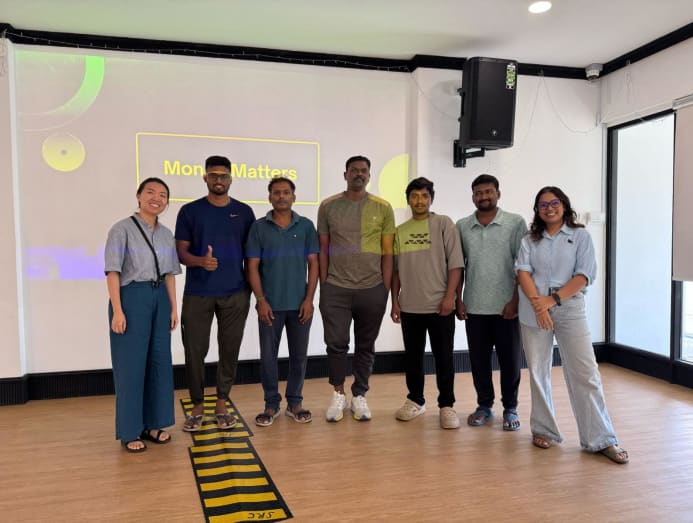
While ItsRainingRaincoats and other organisations have made a difference in improving how migrant workers are perceived in Singapore, Dipa is clear-eyed about the road ahead. As with any social justice cause, she said, “there’s always room for improvement”.
“When the pandemic happened, so much attention was finally given to the workers because of the horrible conditions they were subjected to in the dormitories,” she said.
ItsRainingRaincoats saw an unprecedented surge in public support. Donations poured in – clothes, food, money – and the calls for stronger protection grew louder.
Migrant workers became a national topic. Their well-being was discussed in parliament, and people were even discussing their right to be part of the National Day celebrations.
“It was a heartening moment,” Dipa said. “It showed us that Singaporeans and people living here do care. It made us believe ItsRainingRaincoats could grow even more – the support was real.”
Five years after the pandemic, Dipa stresses the importance of sustaining that support.
She points to ongoing issues that migrant workers continue to face, starting with one that’s been raised again and again: Unsafe transportation.
“Lorries,” she said. “Unsafe transportation is such a frustrating topic for so many members of the public. This has been going on for so long, and yet, in the last 10 years, so many deaths have still happened this way.
“We sit in the comfort of our cars and we feel a collective shame and guilt every time something happens, but the system still hasn’t changed.”
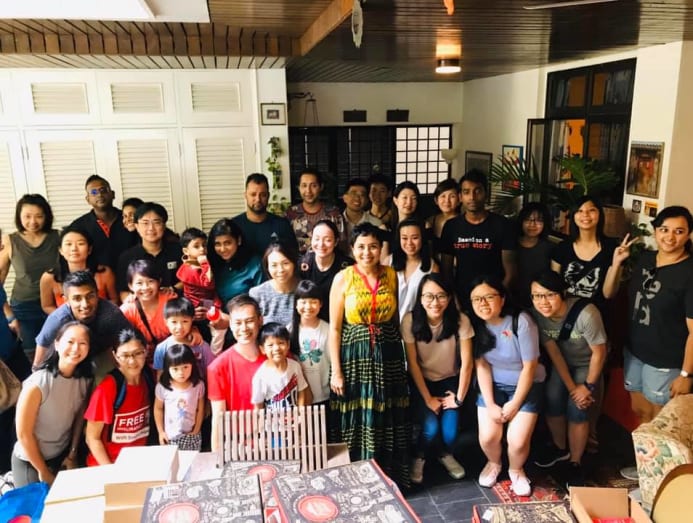
Then, there’s the matter of wages.
She shared that from her ongoing conversations with workers, some still earn as little as S$18 a day. That’s for a full day’s worth of intense, physically demanding labour under the brutal sun. And even then, she said: “Many don’t get paid on time.”
She gives an example of a painter she knows – someone who works on towering buildings, 30 floors up.
“These men haul their own 60- to 70-kilogram bodies, along with more weight of gear. Everything depends on the strength of a single rope.
“It’s not a thrill-seeking bungee jump – it’s their job. They do it every single day, hanging outside buildings to paint our homes, our malls, our offices.
“And yet, who’s checking the safety of that rope? Who’s ensuring they don’t die while painting the places we live in?
“Earning S$18 a day for that kind of risk doesn’t just make it hard to save, it makes basic survival a challenge,” she said. “Soap, toiletries, clothes, medicine, even Wi-Fi to call home – all of it has to come out of that.”
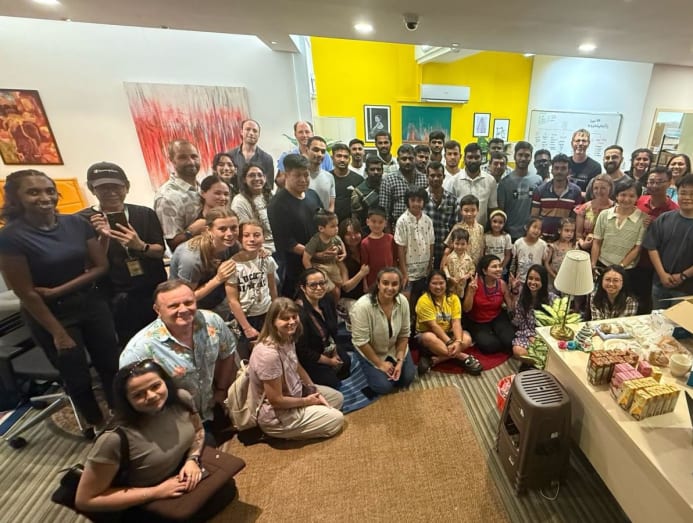
Still, Dipa remains committed.
As most of these are policy-related issues, ItsRainingRaincoats, along with other migrant workers’ rights and support organisations like Transient Workers Count Too and Migrant Workers’ Centre, attend sessions with Members of Parliament and other key decision-makers to address these concerns.
“Some of these issues seem bleak, and I have more questions than answers these days. But the key is to keep going. We have to keep going. We must do better as a society.”
PASSING THE MANTLE TO THE NEXT TEAM
Dipa started ItsRainingRaincoats with just a few trusted friends. Today, it has two full-time staff and is supported by hundreds of regular volunteers and thousands of ad-hoc ones, many of whom are willing to dip into their own pockets to buy items or offer help whenever a worker is in need.
“So much time has passed since then. I’m 10 years older, my boys are all grown up, and my mum is now 91,” she said. “It’s incredibly heartwarming to see so many people come together for this often overlooked corner of our community.” Dipa’s sons are 20 and 17 years old.
“There’s no ‘out of office’ for ItsRainingRaincoats,” she said, half laughing. “As a lawyer, I can switch off. But for this, I’m always reachable. It’s been hard and relentless some days, juggling caregiving, raising my sons and managing my day job, but I feel a debt to the workers, so I’ve never turned my back on them.
“We’ve created a kind of social net, and if we stop doing what we do, that net disappears.”
Despite the challenges, she chooses to focus on ItsRainingRaincoats’ bright spots and impact, and the passion of the young.
“There’s a natural empathy in young people,” she said. “They see something unfair, and they instinctively want to do something about it.”
The challenge, she said, is keeping that interest alive.
To mark ItsRainingRaincoats’ 10th anniversary, the charity is hosting a fundraising gala lunch, featuring speeches from volunteers and workers, and a fashion show where the workers will showcase their creativity on the catwalk. Those who are interested in attending can reach out to ItsRainingRaincoats via their website or social media.
“Sometimes it’s easy to want to give up and feel as though nothing’s really changed,” she said.
“But looking back at these 10 years, I realised that so much has changed. Now, many people in Singapore show up for the people who built – and continue to build – our country.
“Seeing them, I’m filled with hope. And that’s what keeps me going forward.”
CNA Women is a section on CNA Lifestyle that seeks to inform, empower and inspire the modern woman. If you have women-related news, issues and ideas to share with us, email CNAWomen [at] mediacorp.com.sg.





